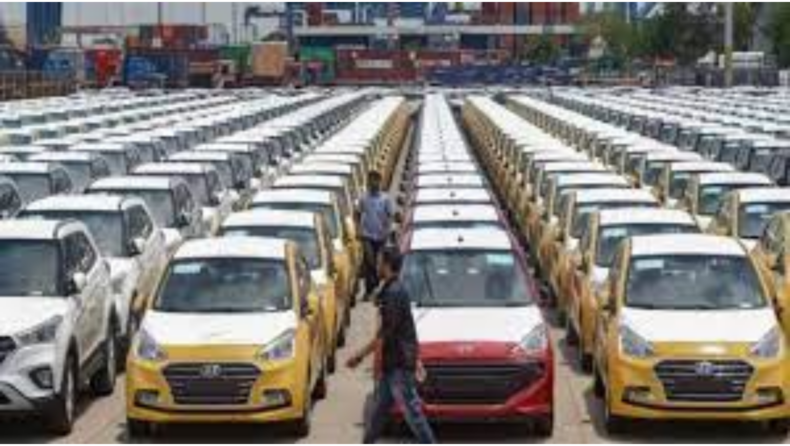Maruti Suzuki Toyotsu: A joint Venture
In Noida, Uttar Pradesh, Maruti Suzuki Toyotsu India (MSTI), a joint venture (JV) between Maruti Suzuki India (MSIL) and Toyota Tsusho Corporation, has inaugurated its first government-approved end-of-life vehicle (ELV) scrapping and recycling operation.
The 10,993-square-metre plant, which can scrap and recycle over 24,000 ELVs yearly, was launched Tuesday by the Union Minister of Road Transport and Highways (MoRTH), Nitin Gadkari. It’s a stride forward towards a circular economy, intending to promote ELV dismantling that is regulated, accessible, and environmentally benign.
All of the equipment used at the plant is made in India. The facility adheres to internationally recognised quality and environmental requirements. These include total solid and liquid waste management, as well as zero liquid and gas discharge from ELVs. In 2019, MSIL launched a joint venture with Toyota Tsusho Corporation and its India subsidiary, in which MSIL owns 50% and Toyota Tsusho Corporation and its India subsidiary each own 25%.
This is the third scrapping facility that has been approved. Vehicle scrapping is now permitted in two facilities constructed by a joint venture between state-owned MSTC and Mahindra, one in Noida and the other in Chennai.
Tata Motors announced a deal with the Gujarat govt’s harbours and transportation department in August to facilitate the establishment of a registered vehicle shredding operation in Ahmedabad for edge passengers and corporate cars. The scrapping facility will be able to recycle up to 36,000 vehicles per year.
According to Gadkari, the Ministry of Road Transport and Highways’ National Vehicle Scrappage Policy aims to create an environment for phasing out unfit and polluting automobiles.
In March of this year, MoRTH launched the scrappage policy in order to boost commerce and jobs. The administration hopes to encourage people to discard cars older than fifteen years and replace them with a new one through this legislation, whilst to prevent people from driving old cars.
According to Kenichi Ayukawa, chairman of MSTI and managing director and chief executive officer (CEO) of Maruti Suzuki India, there has never been a scientific, clean, or healthy manner to dispose of an automobile at the end of its life cycle. “To close this gap, MSTI employs global process methodology,” he explained.
Toyota Tsusho Group has been recycling ELVs in Japan since 1970, according to Naoji Saito, CEO of Toyota Tsusho Corporation’s metal division.
When a car arrives at MSTI, it will be adequately examined, and its documentation will be scrutinised. It will then be transported for pre-treatment and de-pollution, as well as the extraction of components and conglomerates such as cells and cushions to ensure minimal depletion. Following that, it will be dismantled and processed in accordance with worldwide best practices, with debris being separated.
A price hike on cars 2022
Maruti Suzuki has declared that starting in January 2022, the prices of several models will increase. The increase in input costs would be passed on to the consumer through a price increase, according to Maruti Suzuki, India’s largest carmaker.
Maruti Suzuki has stated in a statement to the National Stock Exchange, “Increases in various input costs have continued to have a negative impact on the cost of the Company’s automobiles over the last year. As a result, it has become necessary for the Company to pass on part of the higher costs to customers in the form of a price increase. The price increase is set to take place in January 2022. The increment will be different for each model.”
2022 looking suitable for automobile Industry
The Indian car sector is optimistic about reaching pre-pandemic levels of sales volume in 2022, after laying a good base in 2021 despite manufacturing being hampered by semiconductor scarcity.
With demand for passenger vehicles remaining strong despite rising commodity prices, many automakers are eager to adopt new technologies, particularly in the electric mobility arena, which is projected to see a flood of new releases in both four- and two-wheels categories this year.
R C Bhargava, Chairman of Maruti Suzuki India, expressed hope that 2022 will be a more decisive year for the industry than 2021 in an interview with PTI.













